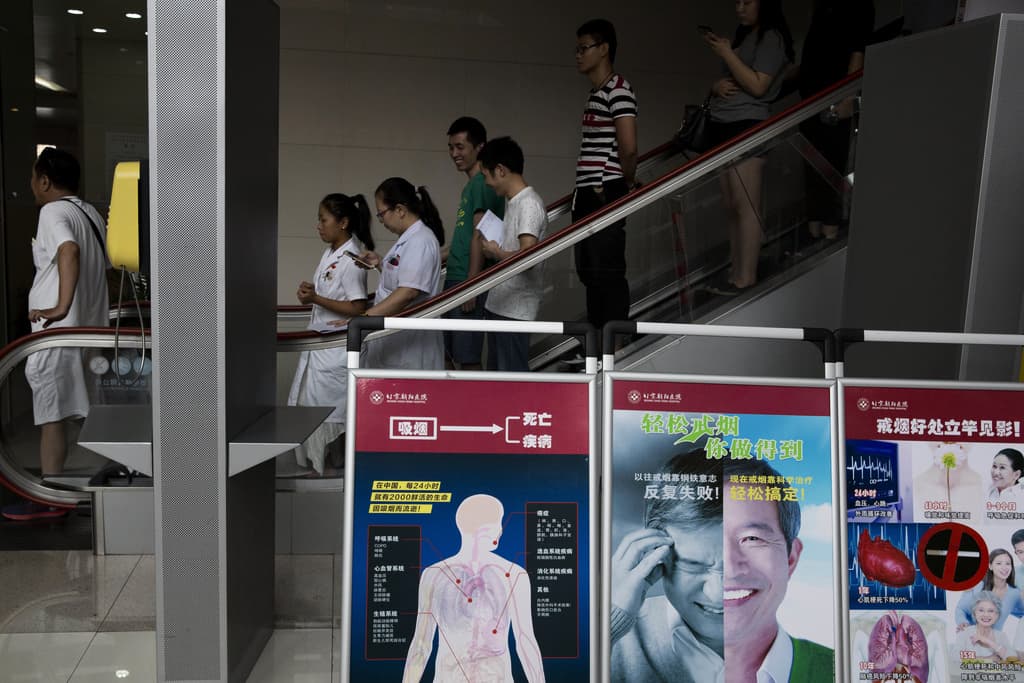This year, Cheng Pei Ming was threatened, persecuted, and imprisoned for practicing the meditation method Falun Gong. After managing to flee to Thailand and later the USA, he is now telling his story to, among others, The Diplomat.
Starting in 1999 – when the Beijing regime banned Falun Gong and began persecuting practitioners – Cheng was, according to his own account, subjected to torture and forced labor in captivity. In November 2004, he woke up in a hospital after a forced operation, in shackles and with a terrible pain in his side.
I was connected to a blood-stained tube and fastened to the bed, he says in the interview with The Diplomat.
It wasn't until 16 years later, after fleeing to the USA, that he says he found out what had happened during the operation through an X-ray: parts of his liver and lungs had been removed.
Not Leaking Out
58-year-old Cheng is now described as the only known survivor in the world of the organ harvesting that the Beijing regime has been accused of – and denied – for decades. Campaign groups claim that tens of thousands of people are killed through organ harvesting in China every year. But it is extremely difficult to know anything for certain – and get confirmation of what has happened in individual cases.
That organ trafficking is taking place or has taken place in China is, however, something that no one doubts, according to Fredrik Fällman, researcher and associate professor at the University of Gothenburg. But in closed-off China, insight is minimal.
The scale and how it has changed over time, what the authorities are doing, and who is affected, is extremely difficult to get hard facts about. These are things that don't leak out, he says.
As early as 1995, Amnesty reported that China was likely harvesting organs without consent from executed prisoners. Since then, several reports have come to the same conclusion – and also established that transplants have taken place before donors were declared brain dead, which goes against international medical ethics. A larger analysis in American Journal of Transplantation in 2022 found that at least 70 prisoners between 1980 and 2015 are believed to have been executed by having their hearts removed.
Kidneys and Corneas
At the same time, Chinese hospitals are advertising organ transplants in English, Russian, and Arabic, according to the study's findings.
Chinese hospitals are marketing wait times of just a few weeks for organ transplants – compared to months and years in the West, said one of the researchers behind the study, Israeli Jacob Lavee, to Haaretz in 2022.
Screenshots in Haaretz show how hospitals in Nanjing and Tianjin are offering transplants of various organs to international patients – something that in itself does not necessarily mean that the organs come from people who have been forced to give them up. But people following the issue wonder where the organs come from.
Surgeons can harvest up to four healthy organs from a single person, said Ethan Gutmann, a researcher who has written books about China's organ trade, according to Radio Free Asia in the US Congress in March.
In 2021, a group of UN experts expressed concern over credible reports of organ harvesting from prisoners belonging to religious and ethnic minorities in China, including Uighurs. Most often, it involves organs such as the heart, kidney, liver, and cornea, wrote the UN experts.
Impossible to Know
But concrete evidence is lacking. Most victims are believed to die during the operations and are then quickly cremated.
China has responded to the allegations by strengthening laws and regulations around organ donations, which according to Beijing's official statement are supposed to be "voluntary and free". Whether the rules are actually followed is shrouded in darkness.
China is not transparent. There is a high level of healthcare in larger cities and major hospitals – according to the state, they follow laws and medical ethics, but in the 2000s, the state also acknowledged that they had used organs from executed prisoners for transplants, says Fredrik Fällman at GU.
The scale of the whole thing is impossible to know. There is no one who can report independently on this issue.
Still Hurting
Cheng Pei Ming says that he still wakes up at night with images from his captivity on his retina: the guards' faces, the sterile hospital room, the total powerlessness. Across the left half of his torso runs a long scar that still hurts.
I have lost several years of my life, and the fear of being pursued by the CCP (Chinese Communist Party) never goes away, he says to The Diplomat.
China's embassy in the USA has rejected Cheng's claims and called them "sensational lies", according to the scientific journal BMJ.
Hundreds of thousands of people, mostly belonging to the Muslim minority Uighurs, have been placed in internment camps in Xinjiang in northwestern China, according to investigations and research reports. Already a few years ago, it was said to be over a million, and today, the number is estimated to be even higher, when counting in arbitrarily detained individuals and abducted children.
China justifies the strict mass surveillance and imprisonment with a "people's war against terror" aimed at combating alleged extremism. People are taken away without trial. China initially refused to acknowledge the camps, but later began describing them as reeducation camps or boarding schools.
Testimonies about torture, forced labor, sexual abuse, and aggressive indoctrination are extensive. China does not allow independent oversight.
Sources: UN Human Rights Commissioner, HRW, and others






